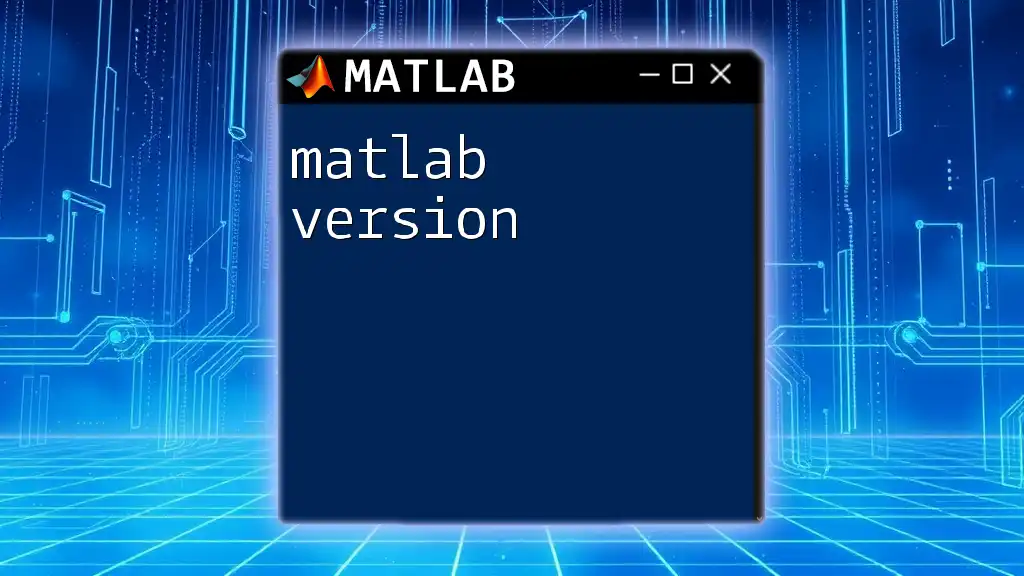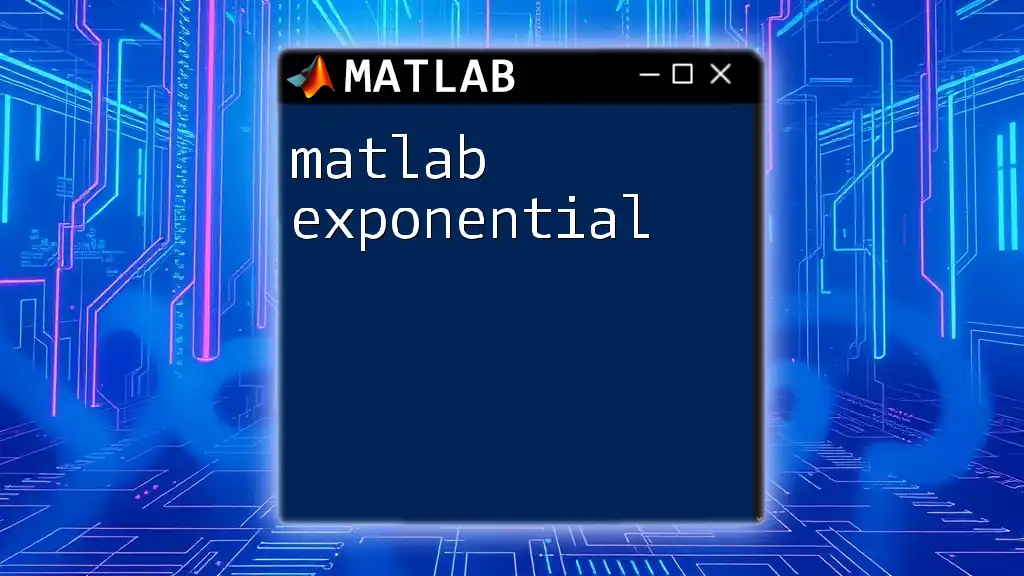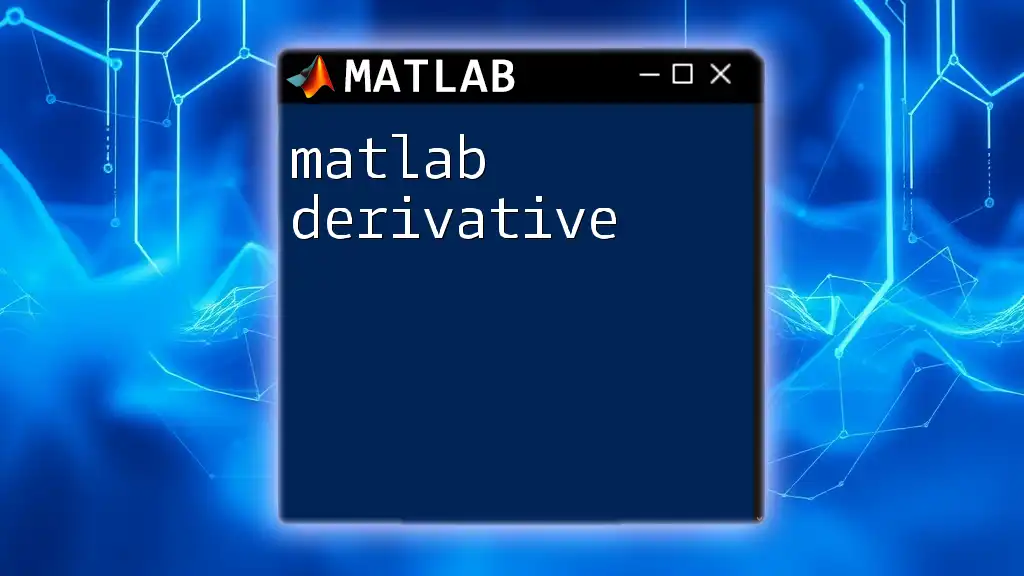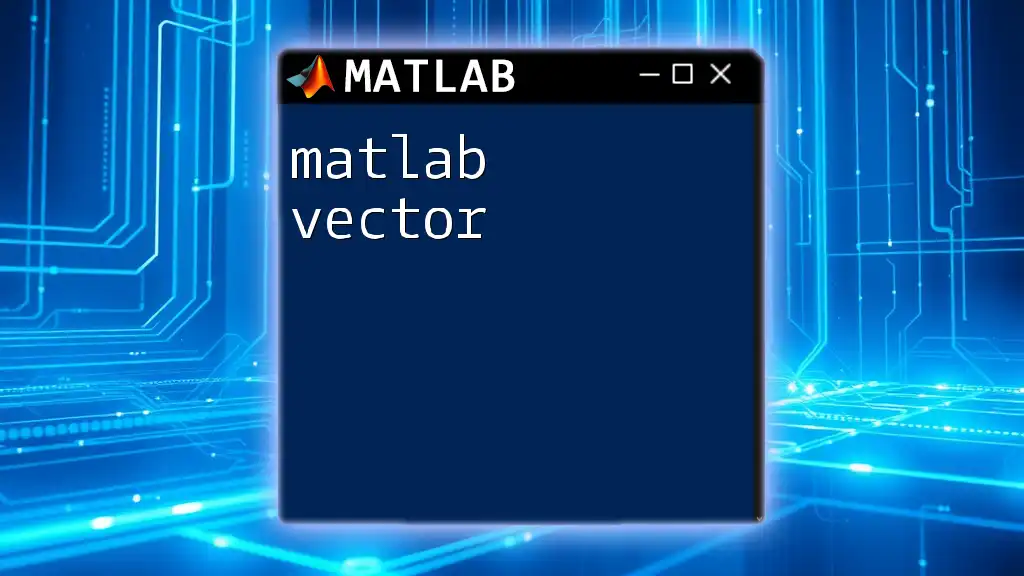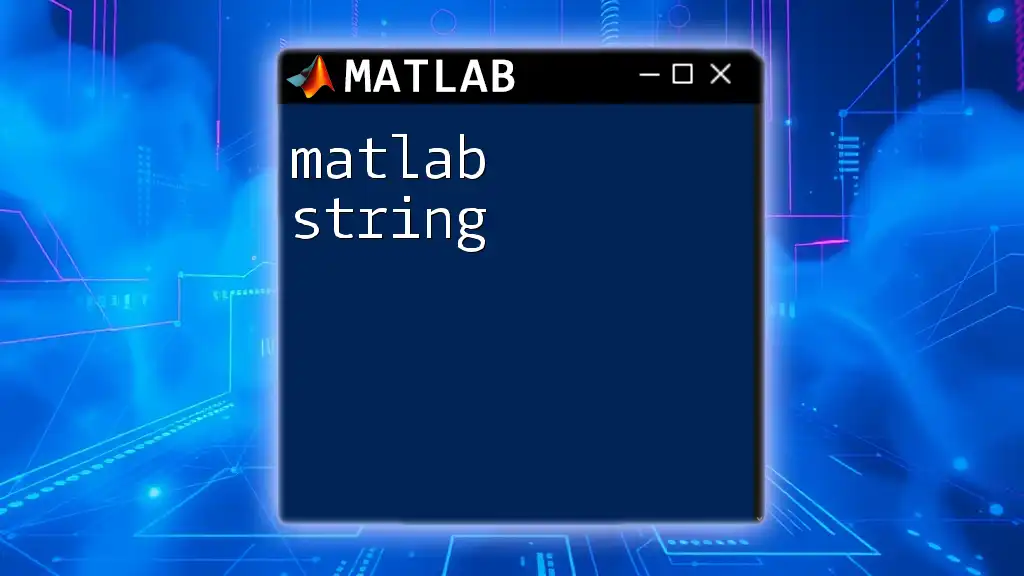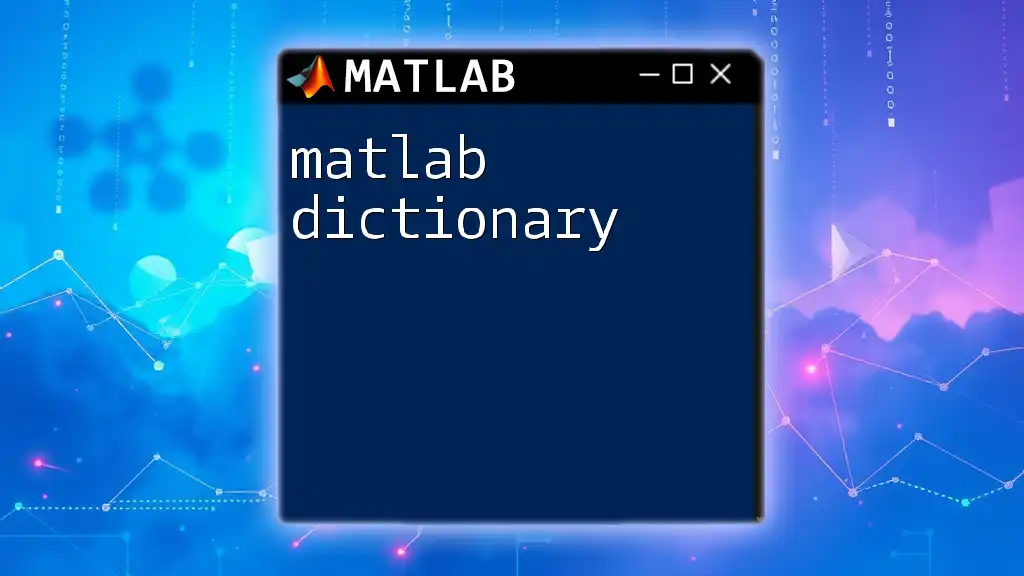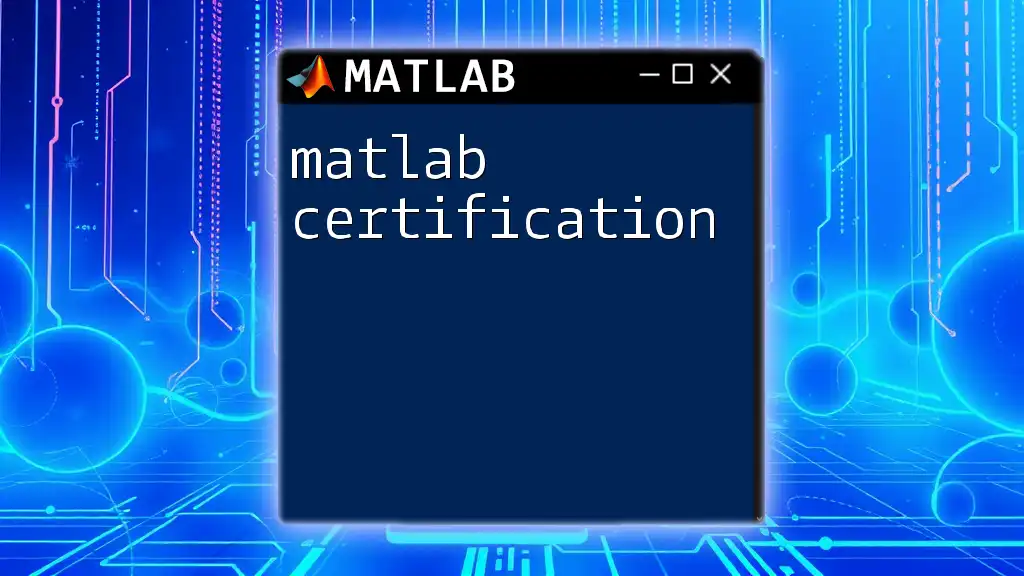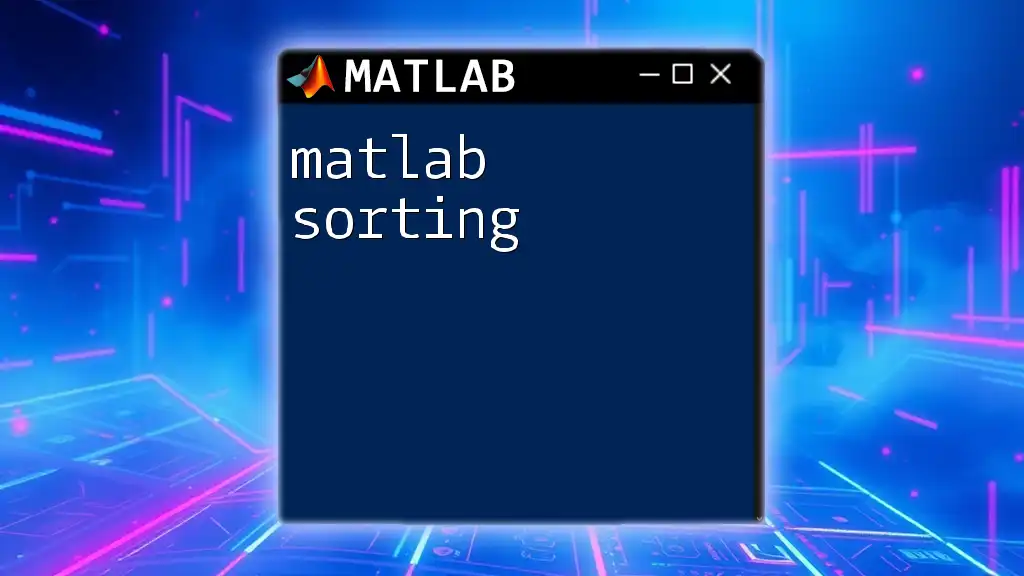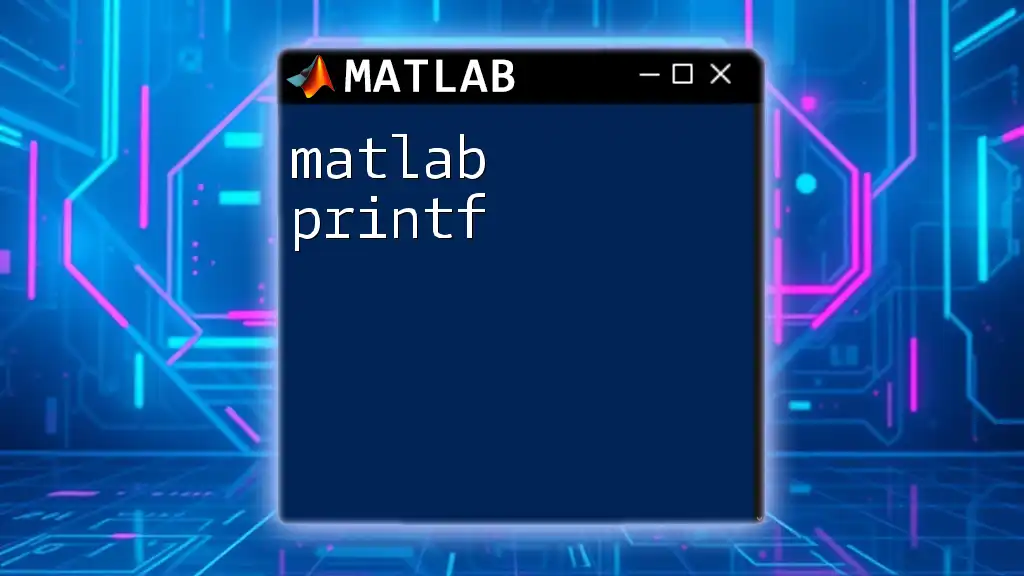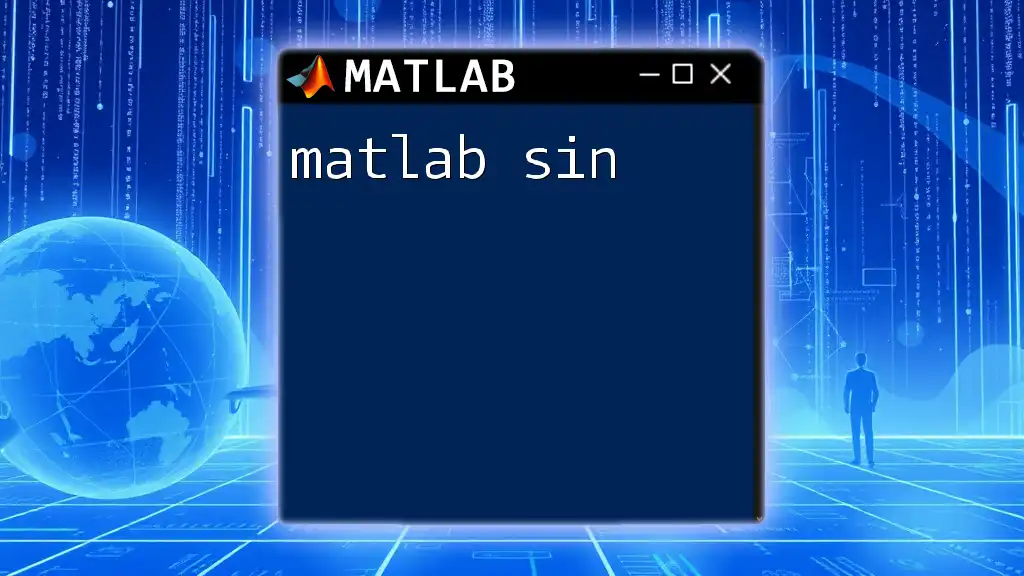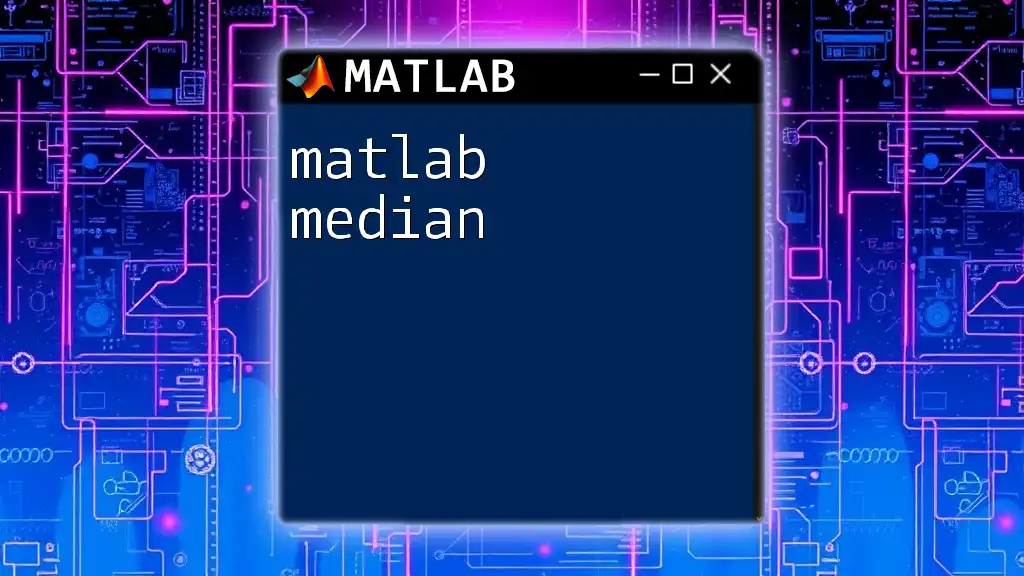The "MATLAB version" refers to the specific release of the software, which can affect the available functions and features that users can leverage in their projects.
% Example: Check the current version of MATLAB
version_info = version;
disp(['Current MATLAB Version: ', version_info]);
Overview of MATLAB
MATLAB, short for Matrix Laboratory, is a high-performance programming language and interactive environment primarily used for numerical computation, visualization, and programming. It is widely utilized by engineers, mathematicians, and scientists for tasks ranging from data analysis to algorithm development.
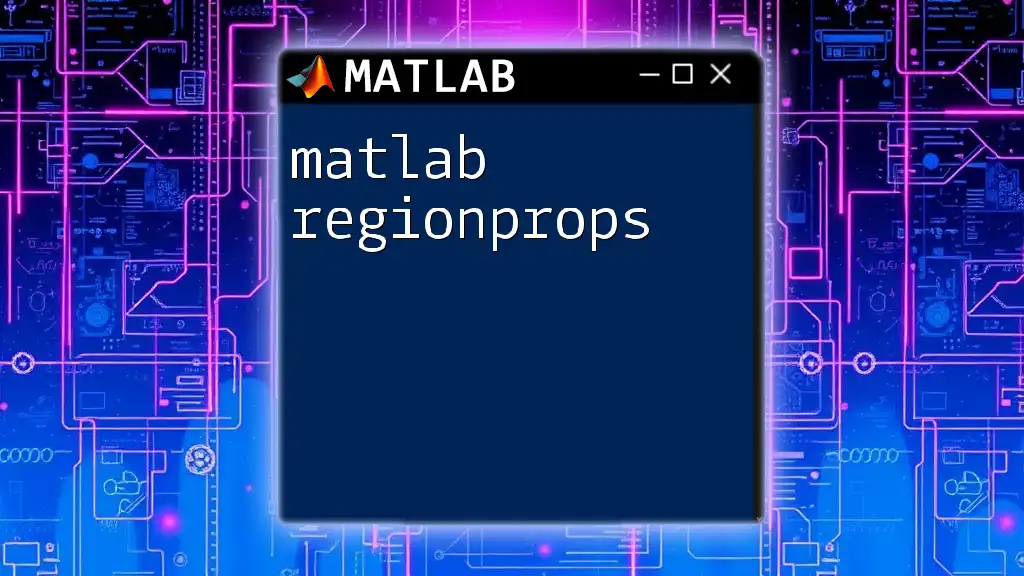
Purpose of Different Versions
Multiple versions of MATLAB exist due to the continuous progression in technology, user demands, and the introduction of new functionalities. Each version is designed to enhance user experience, provide support for newer operating systems, and introduce new toolboxes and features that would be beneficial for various applications. Keeping up with these versions is crucial for users to leverage the latest capabilities of MATLAB.
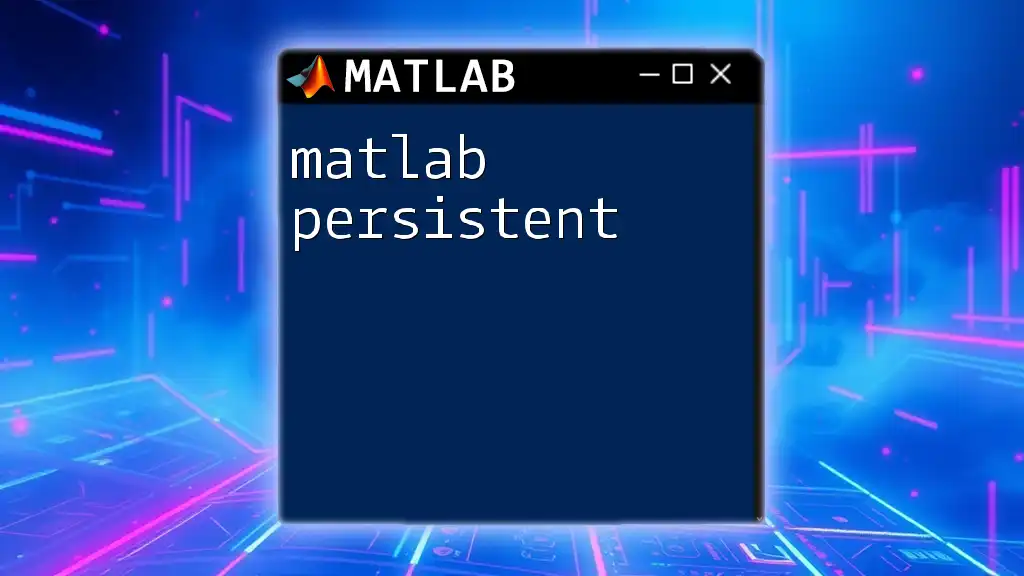
Evolution of MATLAB: A Quick Historical Perspective
Origins of MATLAB
MATLAB originated in the late 1970s as a simple tool for linear algebra. It was created by Cleve Moler, and its primary functions focused on matrix computations, which made it popular in academia.
Key Milestones in MATLAB Development
- Initial Release in 1984: The first official version was introduced, laying the foundation for its capabilities.
- Rise of Toolboxes in 1990s: The introduction of specialized toolboxes allowed users to extend MATLAB’s functionality for varied applications, such as control systems and signal processing.
- Integration with Simulink: Enhancements in the late 1990s allowed MATLAB to simulate normal and complex systems, further broadening its appeal.
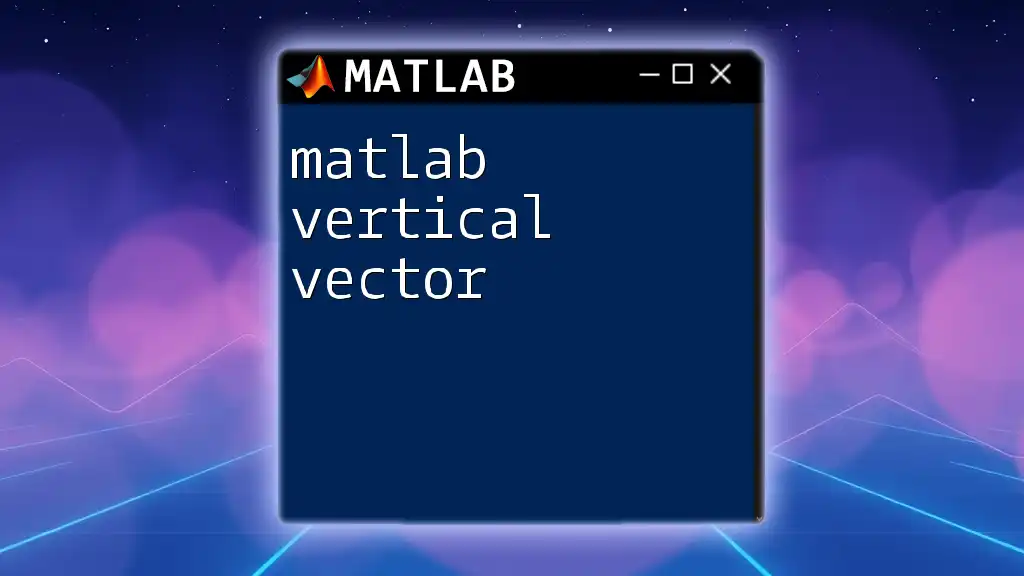
Understanding Versioning in MATLAB
What is Versioning?
Software versioning is a system that allows developers to track changes in software over time. In the context of MATLAB, versioning helps users understand the progression of functionalities, layout, and compatibility over different releases.
Semantic Versioning in MATLAB
MATLAB follows semantic versioning, where version numbers consist of three parts: `MAJOR.MINOR.PATCH`. Each part conveys specific changes:
- Major: Introduces incompatible changes that may require code adjustments.
- Minor: Adds functionality in a backward-compatible manner.
- Patch: Includes backward-compatible bug fixes.
Importance of Keeping Up with the Latest Version
Staying current with the latest MATLAB version is essential for several reasons:
- New Features and Improvements: Each new release typically includes enhancements that improve workflow and productivity.
- Bug Fixes: Upgrading ensures users benefit from the latest bug fixes that improve system stability and performance.
- Compatibility Issues: Using outdated versions can lead to compatibility problems when collaborating with peers or using shared files.
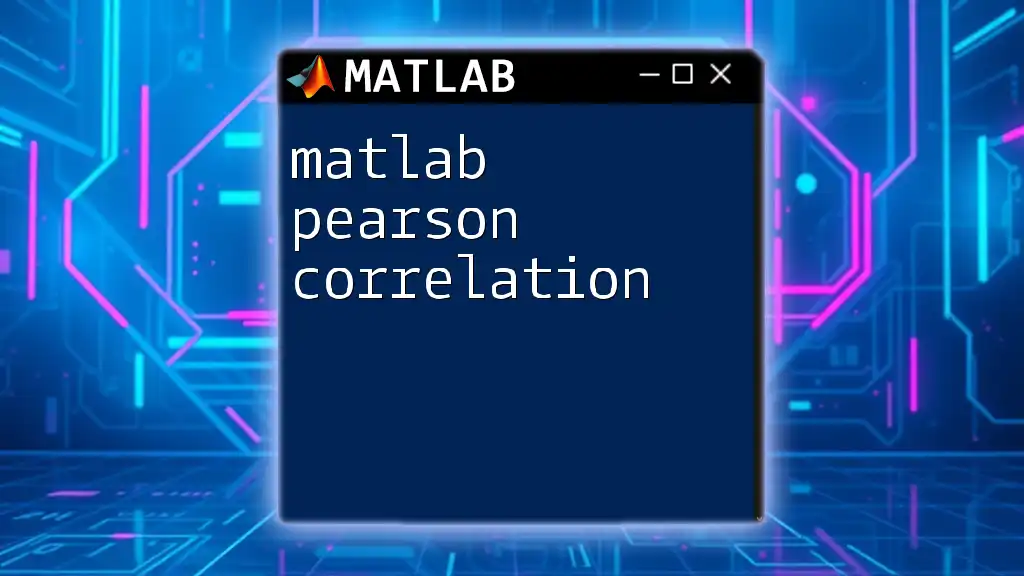
Current Version of MATLAB
Overview of the Latest Release
The most recent MATLAB version brings significant improvements and features that cater to both novice and expert users. The key enhancements provide increased performance, more intuitive interfaces, and powerful new functions that streamline data analysis.
User Feedback and Community Reaction
Users often share experiences on forums and community boards which provide valuable insights regarding usability and performance improvements. Many users have expressed appreciation for specific features, such as enhanced plotting capabilities and improved machine learning tools.
How to Check Your MATLAB Version
It is essential for users to know which version they are using, especially when collaborating with others. To check your current MATLAB version, run the command:
ver
This command will list the version of MATLAB and all installed toolboxes, giving users a comprehensive overview of their current setup.
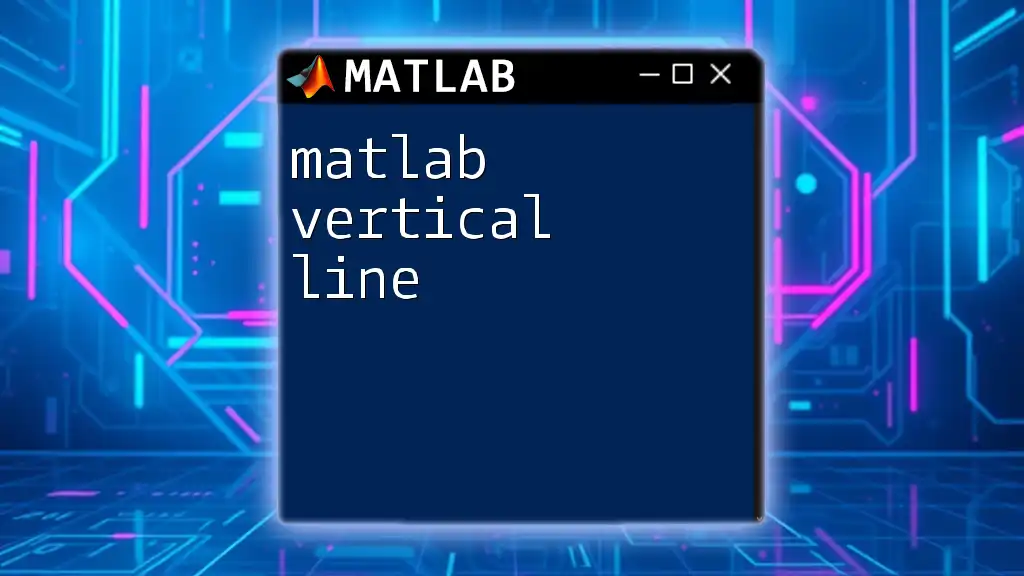
Transitioning Between Versions
Upgrading MATLAB
Steps for a Smooth Transition:
- Backing Up Work: Before upgrading, users should back up their scripts and data files to prevent any potential loss during the update process.
- Checking Compatibility of Toolboxes: Ensure that installed toolboxes are compatible with the new version, as incompatibility may lead to errors during execution.
How to Upgrade on Different Operating Systems
Upgrading MATLAB is typically straightforward. Here are generalized instructions for common operating systems:
- Windows: Open the MATLAB installer, sign in to your MathWorks account, and follow the prompts to download and install the latest version.
- macOS: Similar to Windows, open the installer and proceed with the updates.
- Linux: Run the update script from the terminal and follow the on-screen instructions.
Downgrading MATLAB
It may be necessary to downgrade MATLAB in situations such as compatibility issues with older scripts or toolboxes.
Is Downgrading Necessary?: Assess if the benefits of staying with a newer version outweigh the inconveniences caused by incompatibility.
Steps to Downgrade MATLAB: Users should uninstall the current version and reinstall the desired older version following instructions from MATLAB’s official documentation.
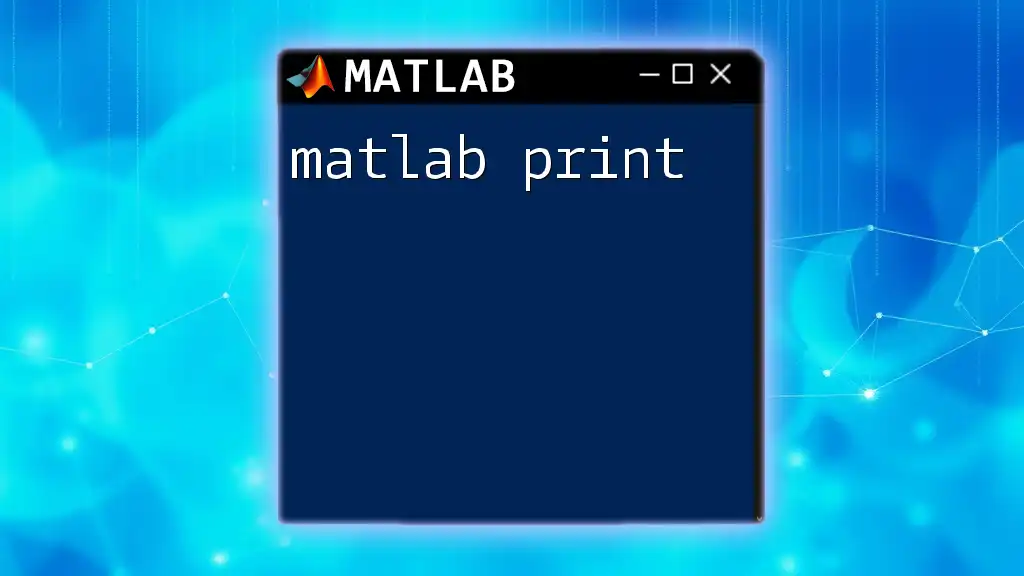
MATLAB Toolboxes and Version Compatibility
Understanding MATLAB Toolboxes
Toolboxes are collections of specialized functions designed for specific tasks such as statistics, signal processing, and optimization. They expand MATLAB’s capabilities, allowing users to perform tasks that go beyond basic functions.
Finding Compatible Toolboxes
MATLAB users should regularly verify the compatibility of installed toolboxes with their version. Users can check compatibility through the MATLAB Add-On Explorer or the documentation provided on the MathWorks website.
Managing Toolbox Updates
Managing toolbox updates ensures that users benefit from the latest features and fixes. Users should regularly check for updates and apply them, especially if working on collaborative projects that require specific tools.
Example Code for Toolbox Version Check
To check if a specific toolbox is licensed for use, run the following command:
license('test', 'Image_Toolbox')
This command returns a logical value indicating whether the specified toolbox is available and licensed. Always check toolbox availability to prevent unexpected errors during coding.
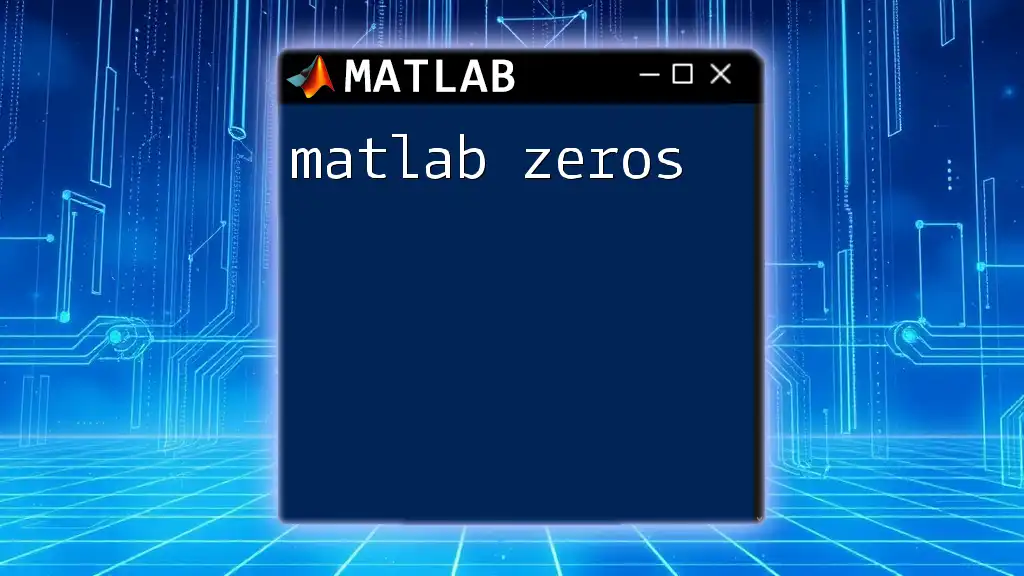
Frequently Asked Questions About MATLAB Versions
Common Queries on Upgrades and Compatibility
Users often have questions regarding what to consider when transitioning between versions. Common queries include:
- What if I encounter errors after upgrading?
- How do I ensure older scripts will work in a newer version?
Where to Seek Help and Documentation
MathWorks provides extensive online documentation and a user community forum. For specific queries, users can seek assistance on platforms such as MathWorks Central, MATLAB’s official user forum, or consult the built-in help documentation.
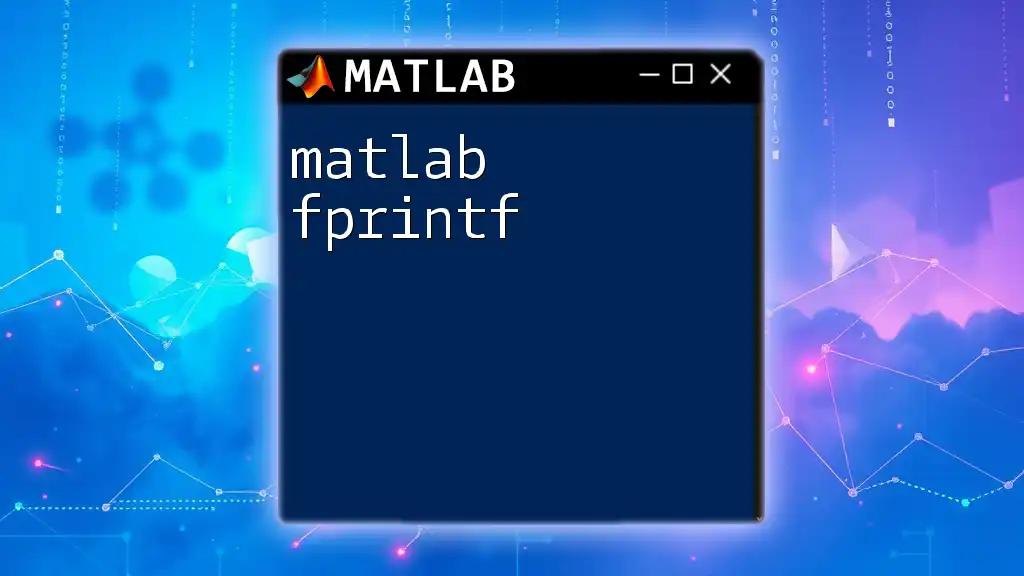
Conclusion
In summary, being informed and aware of the latest MATLAB version is essential for leveraging its full potential. Whether you are upgrading or transitioning between different versions, staying updated can significantly enhance your programming experience and efficiency. Embrace the new features and functionalities with confidence, and experiment freely to maximize the powerful tools MATLAB provides.
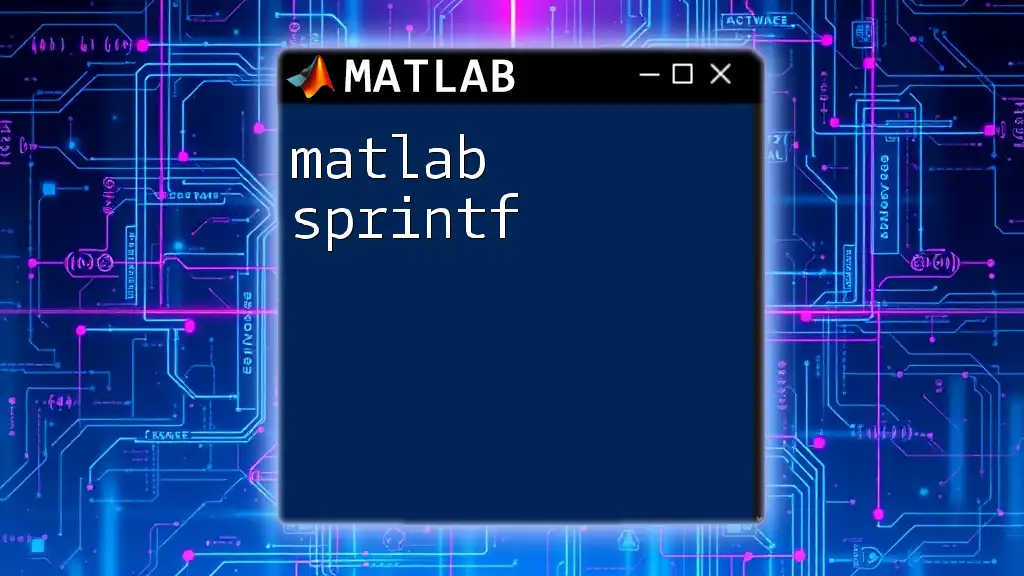
Additional Resources
For more information, visit the official MATLAB documentation. Engage in online courses and tutorials to further deepen your knowledge of MATLAB versions, toolboxes, and functionality.

